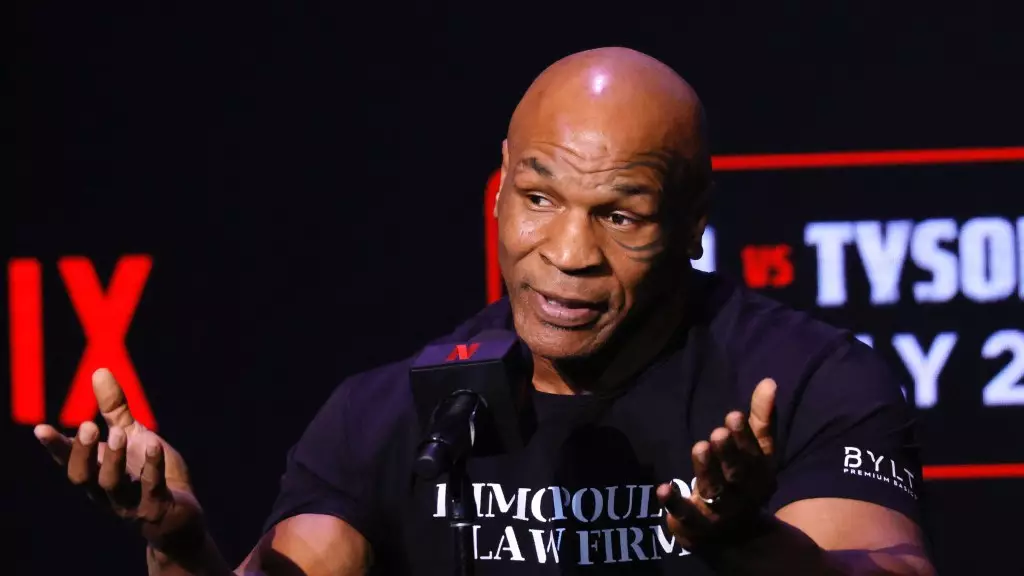The impending boxing showdown between Jake Paul and Mike Tyson has caught the attention of boxing enthusiasts and casual fans alike, not solely due to the fighters’ contrasting backgrounds but also due to a surprising drop in ticket prices. Reports indicated that tickets for the match, scheduled for November 15 at Arlington’s AT&T Stadium, have seen prices sink to as low as $30. This pricing strategy can be viewed as a ploy to fill the 80,000-seat stadium—home to the Dallas Cowboys—while simultaneously catering to a broader audience keen on witnessing a memorable event. The fluctuation in ticket prices reflects a larger trend in the ticketing industry, especially in high-profile events, where initial prices may be staggering but later decline as the date approaches.
The availability of lower-tier tickets has emerged as a double-edged sword. On one hand, it democratizes access to significant sporting events, allowing those who may not typically afford premium tickets a chance to experience the thrill live. However, the scarcity of low-priced options, with only one ticket available at $30 amidst a sea of offerings at $37, raises questions about the anticipation for this particular fight. The contrasting nature of ticket pricing becomes clearer when examining the extravagant costs associated with premium seating; for instance, three available ringside tickets were listed at a staggering $50,000 each. Such a stark divide in pricing reflects a multi-tiered marketing strategy aimed at different consumer segments, from budget-centric fans to affluent individuals seeking exclusivity.
Interestingly, the promotion company, Most Valuable Promotions, also introduced a lavish VIP package, reportedly priced at $2 million, offering two ringside “apron seats.” This polarization in pricing further highlights the varied consumer base surrounding boxing matches. While the fight aims for mass appeal with lower ticket prices, high-end packages lure in affluent clients searching for enhanced experiences. Although the company has not disclosed how many packages have been sold, their existence signals an attempt to capitalize on both ends of the consumer spectrum.
Historical Context and Future Implications
Reflecting on historical attendance records, the recent trend shows that significant boxing events can draw impressive crowds. A notable comparison arises with Canelo Alvarez’s previous fight at the same venue, where 73,126 attendees broke records for indoor boxing events in the U.S. The precedent set by such successful events may put additional pressure on the upcoming Paul vs. Tyson match to achieve similar feats. Given the awareness surrounding ticket price volatility, it will be vital for promoters and organizers to strike a balance between affordability and elite experiences when orchestrating future fights, ensuring they can not only fill seats but also elevate the sport’s standing in the entertainment industry.
The evolving landscape of boxing ticket sales emphasizes a significant shift in consumer behavior. As the date approaches for the highly publicized match between Jake Paul and Mike Tyson, both traditional and novel ticketing strategies will likely be scrutinized under the lens of market trends. Fans and spectators will be eager to see how these dynamics play out in terms of live attendance and overall audience engagement, reflecting changing perceptions in sporting event accessibility and exclusivity.

